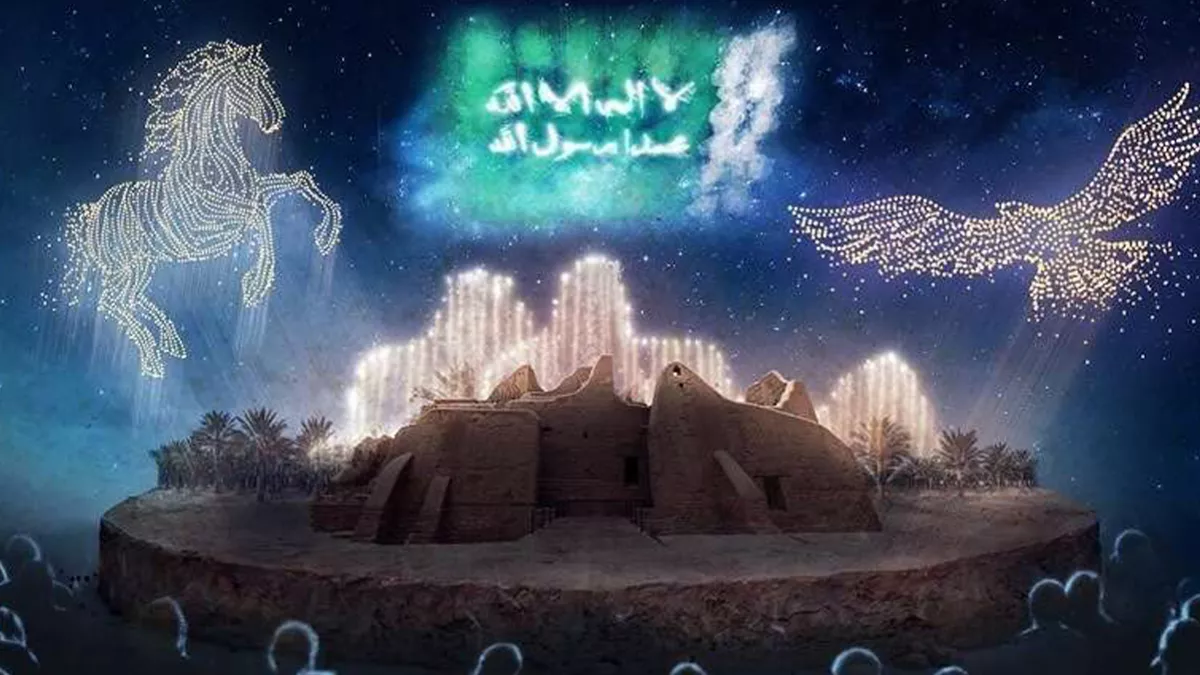
Saudi Arabia celebrated the Founding Day on Feb. 22, 2022 for the first time in its history, which dates back nearly three centuries, when the grandfather of the royal family, Imam Muhammad Bin Saud Bin Muhammad Bin Muqrin established the first Saudi state in Diriyah on Feb. 22, 1727 AD. On that historic occasion, the Saudi Monarch Custodian of the Two Holy Mosques King Salman saluted his citizens, reaffirming that it is to commemorate the “celebration of the history of a country, the cohesion of its people, and their steadfastness in the face of all challenges, while looking forward to a bright future.”
The Saudi Press Agency highlighted the keenness shown in establishing the first Saudi state, and not just the modern state alone. It was an early approach among the Saudi Kings decades ago, even though it was decided to celebrate the Founding Day only this year in the same pattern of the National Day.
In this regard, SPA monitored a number of historical statements that documented the interaction and interest shown by the previous Kings — over establishing their first homeland in Diriyah in the center of the Arabian Peninsula — ever since the period of the modern Saudi Arabia’s Founder King Abdul Aziz, and all through the periods of his sons who succeeded him.
It was documented in the annals of history the following saying of King Abdul Aziz: “I have become the King of this country, which is under my authority, by the grace of God, and then by the Arab character.
Extended history:
The SPA also quoted the saying of the current Saudi monarch, King Salman: “This state that was established nearly three centuries ago or more is the state of monotheism that was established on the firm foundations of the Holy Qur’an and the Sunnah.
“It was the unification of the vast Kingdom in a single entity where equality, justice and trust prevailed as the first model with firm pillars in the modern era in our region.”
This is in reference to the fact that the great-grandfather of the Saud family, Mani’e Al-Muraydi, who died in 1463 AD, preceded the establishment of the Emirate of Diriyah, the date of the establishment of the first Saudi state in the year 1727.
This historic fact was recently adopted after a long time since the writers of the political history of the state preferred to script the date upon the completion of the building at the hands of Muhammad Bin Saud, despite their acknowledgment that his family’s acquisition of authority over Diriyah happened much before that date.
A researcher over the history of Bani Hanifa, from whom the Saudi royal family hails, says that the period of the emirate of the Saudi House dates back to 600 years.
Restoration of security and stability:
Saudi researchers and historians, such as Rashid Al-Asaker, believed that among the most important things that the Founding Day carried was the re-consideration of the founding on which the Saudi state was built from its first days, which is the unification of its entity by providing security and protection, under the authority of justice and law.
Adhering to Islam is not a new matter as far as the people of the region are concerned even before the call for reform, by Sheikh Muhammad Bin Abdal Wahhab, though such a wrong impression was made by some historians with an aura of exaggeration.
The urgent need that everyone wanted was security and that was sought by Bin Abdal Wahhab from the founder of the first Saudi state as well as an inclusive political entity which was non-existent in many areas of the region where the new state was established in the center of the Arabian Peninsula, ever since the assassination of the third Islamic Caliph Othman Bin Affan.
The first Saudi state, as well as the second one faced serious challenges, which led to the collapse of the first at the hands of the Ottoman Turkish invaders, and the second as a result of a political dispute incited by the Turks and with the support of their agents.
This was followed by the current third state, which was founded by King Abdul Aziz, who rebuilt it on solid founding and united the ranks of its people and civilized their desert in an epic that was highlighted by many Arab and Western historians such as Amin Rihani, John Phillip, and Khayr Al-Din Al-Zirikli.
